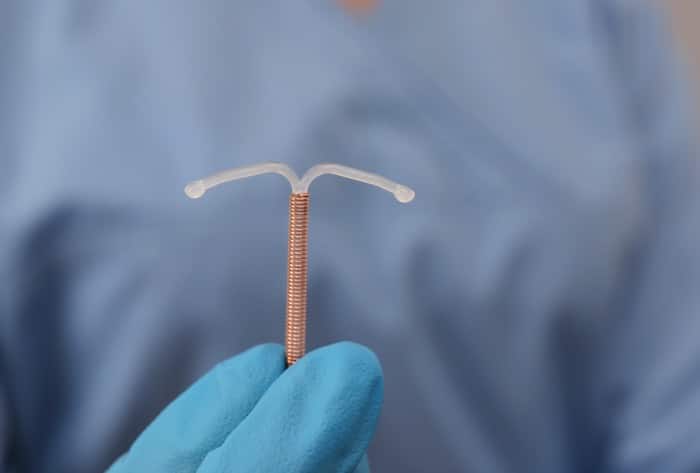BIRTH CONTROL
Birth control, Gainesville, Texas
Women looking for a solution to taking control of their reproductive health and preventing pregnancy are presented with many different forms of birth control, from pills and patches, to vaginal rings. These types of birth control can be high maintenance and do not present a long-lasting solution– and accidents can happen! Birth control is not on-size-fits-all, however, we strive to offer a range of treatments and create an individualized treatment plan that addresses your unique needs and concerns.
Long-acting reversible contraceptives (LARCs) at Vitality Women’s Healthcare are among the most effective methods of birth control that provide a long-term solution for preventing unwanted pregnancy.
Preventing Unintended Pregnancy with Nexplanon
Nexplanon is one of the newest forms of contraception for women seeking long-term birth control. It’s a small implant discreetly placed under the skin of the inner side of your upper non-dominant arm. The implant is a small, flexible plastic rod. When inserted into the body, these rods slowly dissolve over time, releasing hormones that prevent ovulation and fertilization.
The Nexplanon implant lasts for up to three years. After this period, it will need to be replaced. Similarly to an IUD, if you choose to get pregnant during this time, the implant can be easily removed.
Depo-Provera Shot
Some patients may prefer a less invasive method of birth control. At Vitality Women’s Healthcare, we also offer the Depo-Provera Shot, containing the hormone progestin. This suppresses ovulation, keeping your ovaries from releasing eggs and lasts up to 3 months.
Regular shots every 3 months are required to maintain effectiveness.
Intrauterine Device (IUD)
An Intrauterine Device, more commonly known as an IUD, is a small T-shaped device implanted into the uterus as a method of contraception. This is long-term, reversible, and one of the most effective birth control methods out available.
An IUD is a great option for women who wish to become pregnant in the future, but desire effective prevention of pregnancy for the coming years. Being reversible, they can be removed at any time if you wish to become pregnant, unlike tubal ligation. This method of birth control needs to be removed by a health care provider.
Benefits of IUDs
This method is a highly effective contraceptive method when used correctly and can help with irregular bleeding and regulate your menstrual cycle. It is also very safe and has few side effects.
- 99% effective at preventing pregnancy
- Low maintenance
- Long-term, up to 12 years depending on the IUD
- Less painful periods
- Lighter periods
- Helps with irregular bleeding

What are the types of IUDs?
There are 5 different brands of IUDs that are FDA approved for use in the United States:
These IUDs are divided into 2 types:
- Hormonal IUDs (Mirena, Kyleena, Liletta, and Skyla)
- Copper IUDs (Paragard)
The Paragard IUD doesn’t have hormones. The implant is made of copper components, and it provides up to 12 years of protection from pregnancy.
Hormonal IUDs such as Mirena, Kyleena, Liletta, and Skyla IUDs use progestin to stop pregnancy. This hormone is similar to progesterone, a hormone naturally produced by our bodies. Mirena and Lilette are effective for up to 7 years, while Kyleena and Skyla work up to 5 and 3 years respectively.
How Do IUDs Work?
When an IUD is inserted, pregnancy is prevented by altering how sperm cells move, stopping them from reaching an egg. Both types of IUDs share this same mechanism.
Hormonal IUDs such as Mirena, Kyleena, Liletta, and Skyla IUDs thicken the mucus on the cervix to block and trap the sperm. Additionally, the hormones can stop ovulation, meaning no eggs are leaving your ovaries for sperm to fertilize. Uniquely, Paragard IUD repels sperm with copper, making it nearly impossible for the sperm to reach an egg.
Because IUDs are long-term and are effective for years, they are ideal contraceptive options. Patients won’t have to worry about forgetting to take oral contraceptive pills and running the risk of pregnancy. This also won’t affect your ability to get pregnant and can be removed at any time by health care providers.
Can IUDs be used as emergency contraception?
Yes. Paragard, Mirena, and Liletta IUDs put in within 120 hours of unprotected sex will be 99% effective as an emergency contraception. This is the most effective form of emergency contraception, and an alternative to morning-after pills such as Plan B.
Birth Control Pills
The most common form of birth control is the pill. The pill has been around since the 1950s and was originally designed as an oral contraceptive that would prevent ovulation in women who were trying to get pregnant. It’s also used to treat other conditions such as endometriosis and heavy periods. Some side effects of birth control pills including weight gain, headaches, and nausea.
These are a high maintenance birth control option and must be taken daily, leaving room for error and risk factors for pregnancy.
Book now
We provide a safe, non-judgemental space for all your birth control and gynecologic needs. We are here to support your well-being and are committed to providing specialized care for women, so you can continue living strong and healthy.

